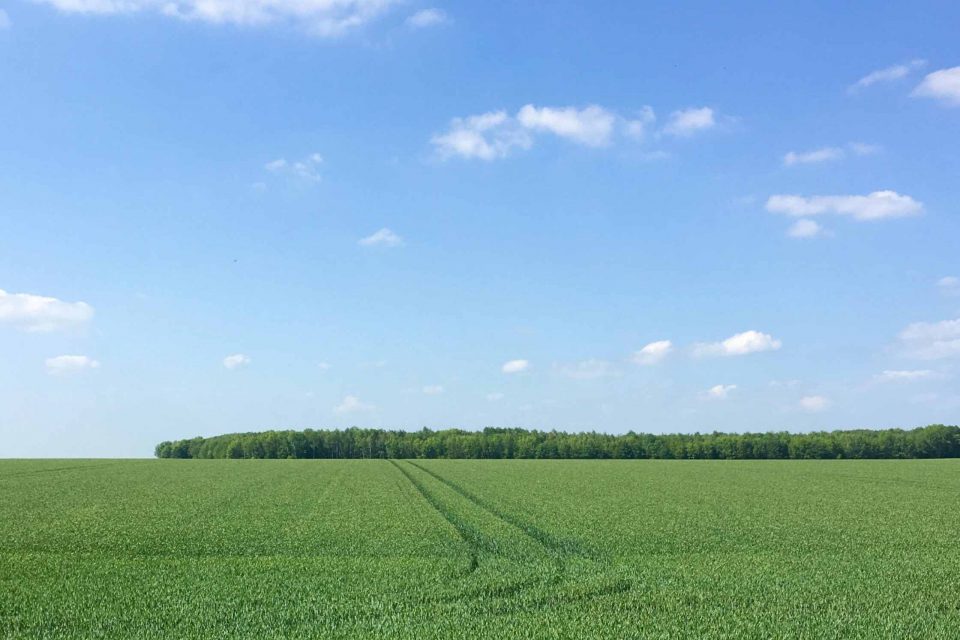Canadian AgriTech startup Susterre raises over $2M in seed funding to reduce the costs and technical barriers limiting the adoption of no-till and conservation tillage

During the 20th century alone, the world population has grown from 1.65 billion to 6 billion. As of the time of writing, it is estimated that there are now 7.93 billion people currently living on this planet. That’s billions of mouths to feed. As such, there is a need to increase food production in order to keep up with the growing population. But there’s a problem.
The Earth currently loses about 23 billion tons of fertile soil every year. At this rate, all fertile soil will be gone within 150 years, unless farmers convert to agricultural practices that restore and build soil organic matter, an essential component of soil fertility. The other problem is that many of today’s industrial agricultural practices are fatal to soil fertility, including deforestation and burning, and excessive use of synthetic fertilizers and other toxic chemicals.
As explained here, one of the biggest contributors to soil degradation is the common practice of soil tilling. The good news is that a growing number of farmers realize the importance of preserving and improving their soil by adopting no-till practices. And that’s where today’s AgriTech startup comes in.
Susterre Technologies is a Calgary, Canada-based startup that enhances agriculture by lowering the cost of farming, improving the health of the soil, and preserving the earth’s natural resources.
Founded by CEO Michael Cully, Susterre is pioneering the use of ultra-high pressure fluid jet technology for row crop planting and seeding applications.
Today, Susterre announced it has raised over $2M in seed funding to reduce the costs and technical barriers limiting the adoption of no-till and conservation tillage. No-till agriculture is an established cropping practice in North America that reduces soil erosion and chemical runoff and preserves soil structure including beneficial biology.
Unfortunately, since it can be difficult for existing blade-based planting technology to slice through crop residue and create optimal seeding conditions, many farmers revert to conventional deep tilling methods.
Susterre’s technology uses ultra-high pressure fluid jets (used in industrial applications to cut steel) to slice through thick layers of debris and compacted soil for planting at high ground speed. This technology enables the long-term, cost-effective use of no-till agriculture.
Studies show this innovation reduces the cost of planting by about 13%, increases the planting window under variable moisture conditions, and improves germination rates.
Susterre’s patent-pending technology adapts well to all dominant row crops and seed spacings, but the company will initially focus on North American corn and soy production. The technology is designed as an upgrade to existing planters, making it an easy and cost-effective solution for traditional and no-till farmers to adopt.
“The broad economic and agronomic benefits to farmers and the environment is what drew us to the technology in the first place. We’re very pleased with Susterre’s rapid progress, and the reception received from the farming and finance communities.” Martin Vetter Venture Partner, Carrot Ventures.
The funding will also enable Susterre to release its flagship product that’s focused on improving no-till farming, helping enable conservation tillage to deliver its promised benefits. No-till farming is an agricultural technique for growing crops without disturbing the soil through tillage. Leaving crop residue on the soil benefits farmers, the soil, and the earth by reducing erosion from wind and water, decreasing water evaporation, and preserving carbon in the soil rather than releasing it into the atmosphere.
In a statement, Cully said, “When Carrot approached me, they had sourced and vetted an exciting new technology. They recruited me to be the founder and CEO of a brand-new company dedicated to commercializing the technology. Carrot got the ball rolling by incorporating Susterre, providing start-up capital to get us going, and generally making sure we had a solid foundation that investors would support. Their efforts really set the stage for this round of financing and this phase of Susterre’s life. They’ve been a vital partner in our development.”

